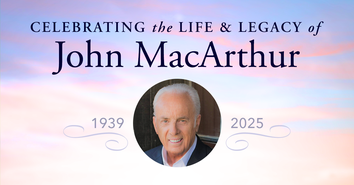Retail Sales Plunge in September

WASHINGTON (AP) - Retail sales plunged by 2.4 percent in September, the largest drop in nearly 10 years of record-keeping, as the terrorist attacks took a sharp toll on the one sector of the economy that had been keeping the country out of a recession.
The Commerce Department report Friday showed that consumer spending declined across a wide range of products from cars to clothing as consumers stayed glued to their television sets following the Sept. 11 attacks rather than venturing out to shopping malls.
Meanwhile, the Labor Department reported that inflation at the wholesale level rose by a bigger-than-expected 0.4 percent in September, reflecting the second consecutive month of large increases in energy costs.
Analysts believed the country was on the verge of staging a rebound in growth after a yearlong slowdown. But then last month's attacks disrupted business activity throughout the country.
Many economists now think that the country has dropped into a recession that will show declining economic activity in the just completed July-September quarter and in the final three months of this year. But they are looking for a return to growth next year, helped by an aggressive campaign to cut interest rates on the part of the Federal Reserve and large tax cuts and increased government spending that Congress is now considering.
The 2.4 percent decline in retail sales in September was three times the size of the decline that many economists had been forecasting. It followed a 0.4 percent sales increase in August. Consumer spending accounts for two-thirds of total economic activity and had been the best-performing part of the economy, helping to offset weakness in business investment and manufacturing.
The Commerce Department said the September falloff in sales was the largest since it has been keeping comparable sales records dating back to the beginning of 1992.
The report showed that auto sales fell by 4.6 percent last month. Excluding that decline, retail sales would have been off by 1.6 percent.
Clothing sales fell by a record 5.9 percent while sales at hardware and building supply stores were down by 2.2 percent. Sales at electronics and appliance stores were off 1.7 percent and sales at furniture stores were down by 1.5 percent.
Last month's increase in the Producer Price Index, which measures inflation pressures before they reach the consumer, matched the 0.4 percent gain in August. Both increases followed a huge 0.9 percent decline in wholesale prices in July, which had been the biggest one-month drop in eight years.
But with economic activity slowing, analysts are not concerned that inflation pressures will get out of hand.
Many economists believe that the overall economy, which managed a barely positive growth rate of 0.3 percent in the April-June quarter, slipped into negative territory in the just completed July-September quarter and will also decline in the current quarter.
However, the outlook is for a strong rebound next year, reflecting the sizable reductions the Fed has already made in short-term interest rates. Analysts also expect that the economic stimulus package of tax cuts and spending increases Congress will approve will also help spur a rebound.
For September, energy prices at the wholesale level rose by 0.9 percent, following an even larger 1.1 percent increase in August. Gasoline prices rose by 6.3 percent last month after increasing 8.7 percent in August. However, both of those gains occurred following a huge 17.7 percent drop in gasoline prices in July.
Food costs last month moderated to a gain of just 0.2 percent following an increase of 0.9 percent in August.
For much of this year, energy costs have been moderating after a sharp rise in 2000. Because of that, wholesale prices through September have been rising at an annual rate of just 1.3 percent, down sharply from the 3.8 percent gain for the same period in 2000.
Excluding volatile food and energy prices, the so-called core rate of inflation was up 0.3 percent in September, reflecting big price gains in a number of areas. The cost of new cars was up 1.3 percent, the biggest increase since a 1.9 percent jump last October.
So far this year, the core rate of inflation at the wholesale level has been rising at an annual rate of 1.6 percent, about the same as the 1.5 percent increase during the same period last year.

Originally published October 12, 2001.







